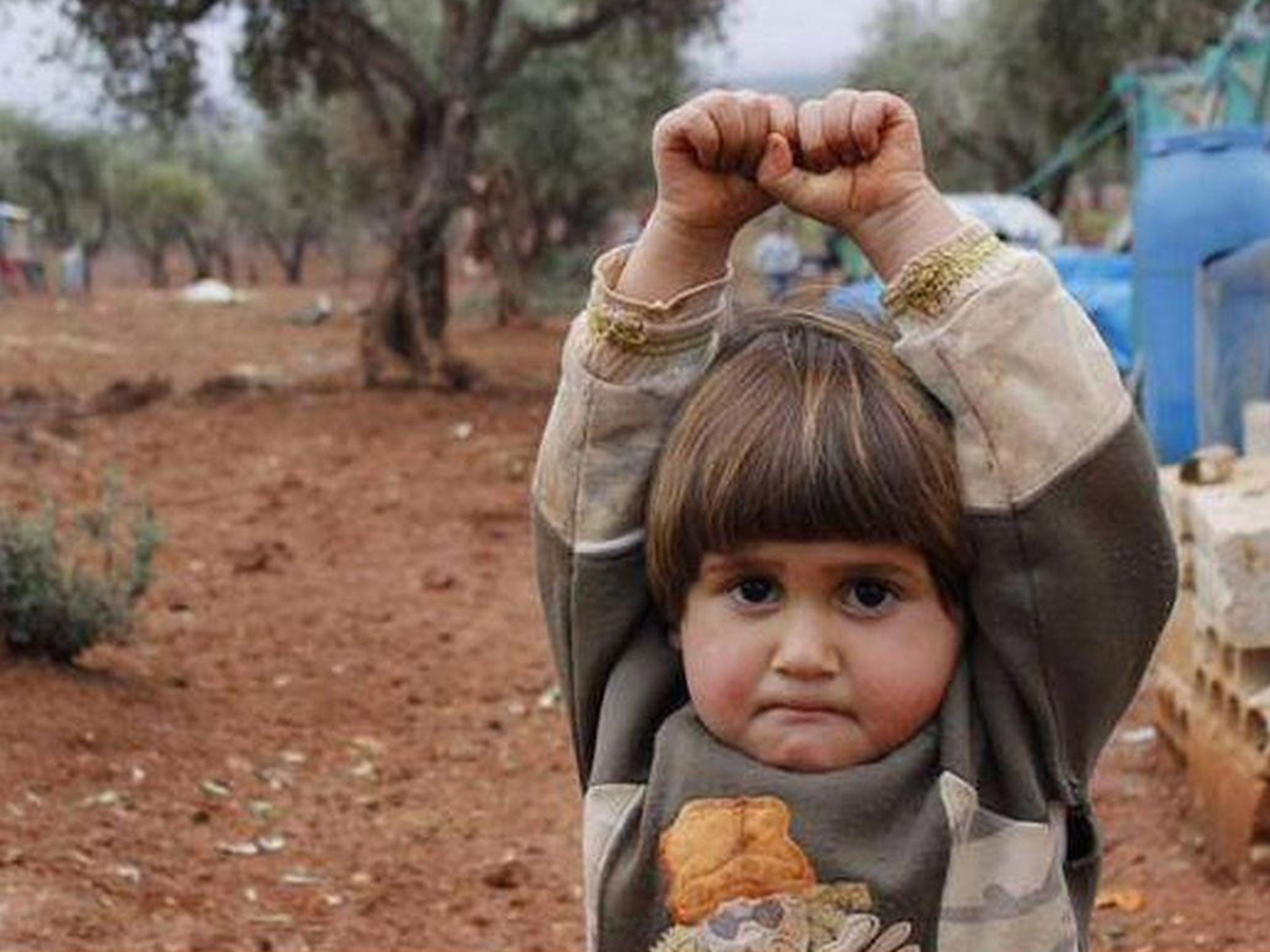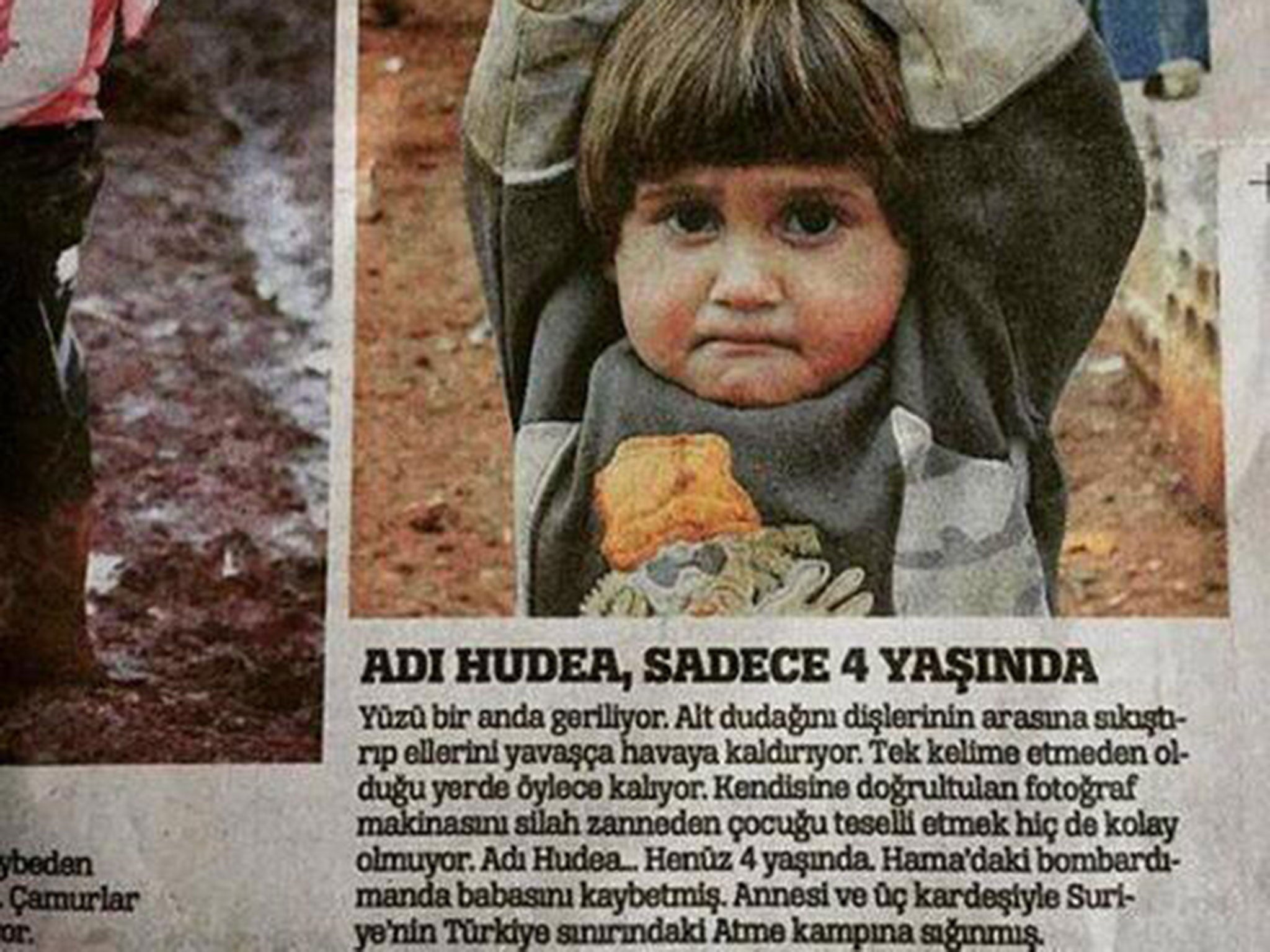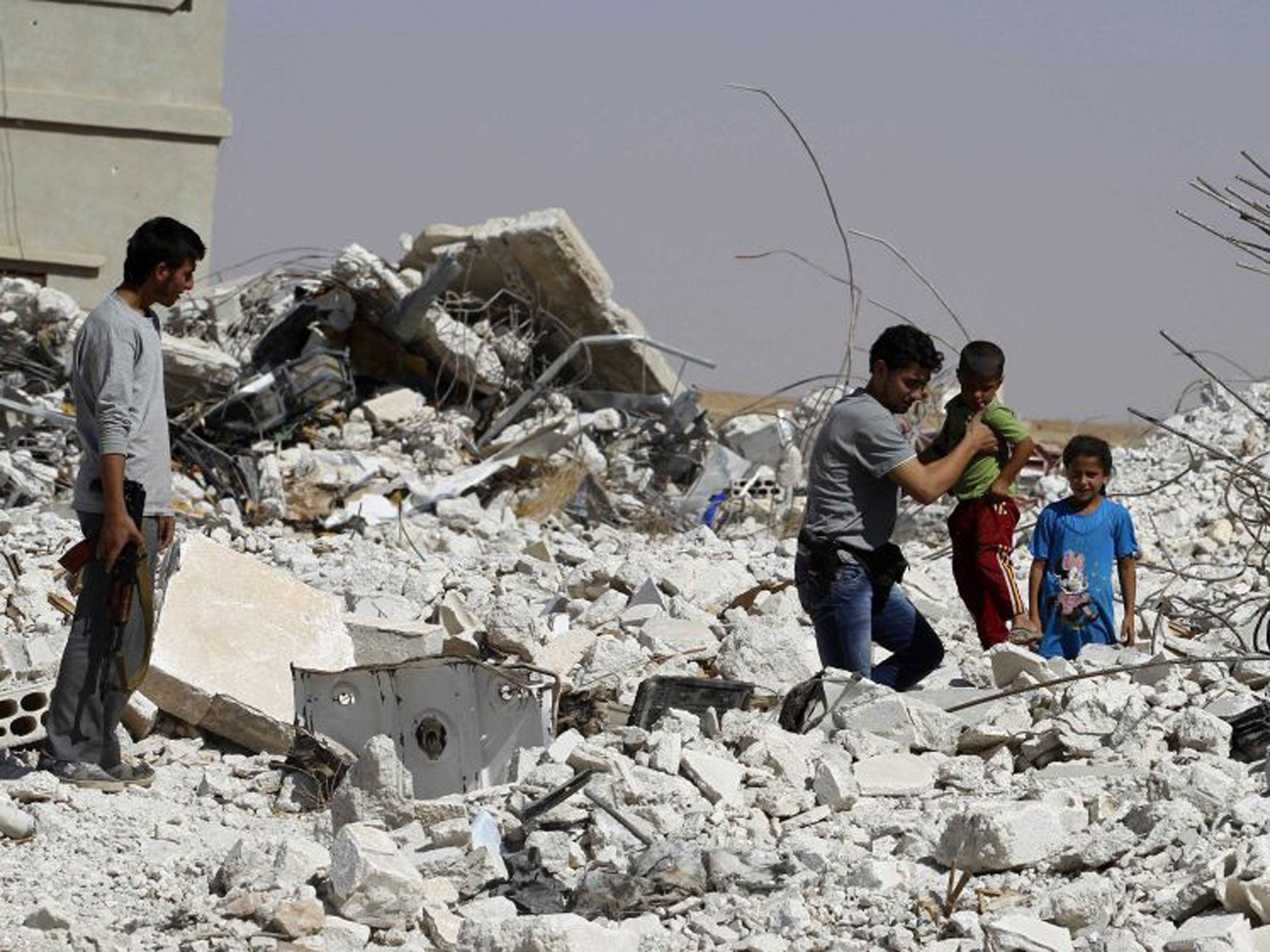Syrian child photographed 'surrendering to camera because she thought it was a gun'
Turkish photographer Osman Sağırlı took this picture at a Syrian refugee camp

Your support helps us to tell the story
This election is still a dead heat, according to most polls. In a fight with such wafer-thin margins, we need reporters on the ground talking to the people Trump and Harris are courting. Your support allows us to keep sending journalists to the story.
The Independent is trusted by 27 million Americans from across the entire political spectrum every month. Unlike many other quality news outlets, we choose not to lock you out of our reporting and analysis with paywalls. But quality journalism must still be paid for.
Help us keep bring these critical stories to light. Your support makes all the difference.
This photo of a Syrian child so scarred by war that she stared into a camera lens believing it was the barrel of a gun and raised her arms in surrender has been shared around the world.
The fear in the little girl’s eyes as she bit her lip to stop herself crying has caused an outpouring of emotion about the “heart-breaking” image showing how “humanity failed” in the Syrian civil war.
It spread across social media this week after it was tweeted by a photojournalist in Gaza.
Nadia Abu Shaban’s post on 24 March has been shared more than 14,000 times, sparking threads on Reddit and other forums being inundated with thousands of comments.
She said the child thought the photographer had “a weapon not a camera” but the lack of further information caused viewers to speculate that the image was fake, posed or taken in an unrelated situation.
But now the man who took the photo has come forward to explain the real context behind it.
Osman Sağırlı told the BBC he took the photo in December last year at Atmeh refugee camp, near the Turkish border.
Now working in Tanzania, he said the child was a four-year-old girl called Hudea who was forced to flee fighting near her home in Hama with her mother and two siblings.
“I was using a telephoto lens and she thought it was a weapon,” Mr Sağırlı recounted.

“İ realised she was terrified after I took it, and looked at the picture, because she bit her lips and raised her hands. Normally kids run away, hide their faces or smile when they see a camera.”
During his 25 years covering conflict and disasters for the Türkiye newspaper, he has visited many refugee camps and told the BBC that suffering can be most keenly be seen through children because they “reflect the feelings with their innocence”.
The image was first published by Türkiye in January alongside an article on the desperate families fleeing the Syrian war, claiming Hudea’s father was killed by bombing in Hama.
The province was the scene of an offensive by the Syrian opposition in December 2012 that sparked a counter-operation by the Syrian Army leading to battles in dozens of towns and villages, as well as the alleged massacre of hundreds of civilians.
More than 200,000 people have been killed so far in the Syrian civil war, where Isis, other Islamist militants, secular rebels and President Bashar al-Assad’s government are fighting on numerous fronts.
Most of the 3.9 million Syrian refugees in Turkey, Lebanon, Jordan, Iraq and Egypt see no prospect of returning home in the near future and have little opportunity to restart their lives in exile, according the UN’s refugee agency.

Millions of children are suffering from trauma and ill health, with a quarter of Syria’s schools have been damaged, destroyed or taken over for shelter and more than half of the country’s hospitals razed to the ground, the UNHCR said.
The Atmeh refugee camp, where Hudea was photographed, sprung up on the Turkish border at the start of the conflict in 2011.
Housing up to 30,000 people, it is known as the “Olive Tree Camp” after the groves surrounding it.
Subscribe to Independent Premium to bookmark this article
Want to bookmark your favourite articles and stories to read or reference later? Start your Independent Premium subscription today.
Join our commenting forum
Join thought-provoking conversations, follow other Independent readers and see their replies
Comments